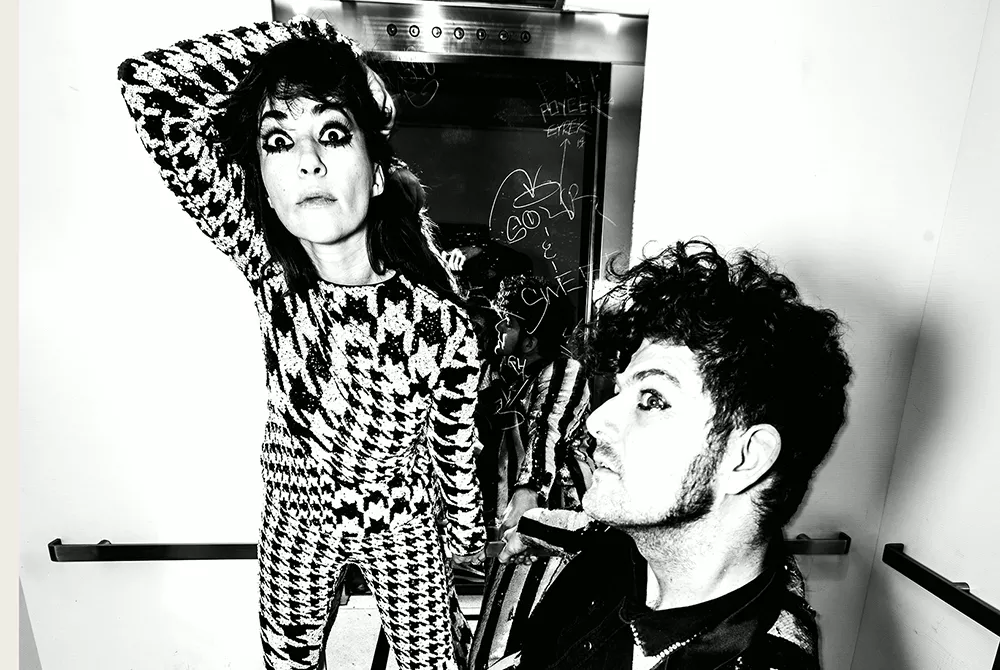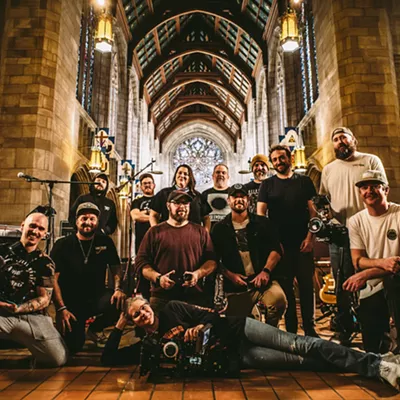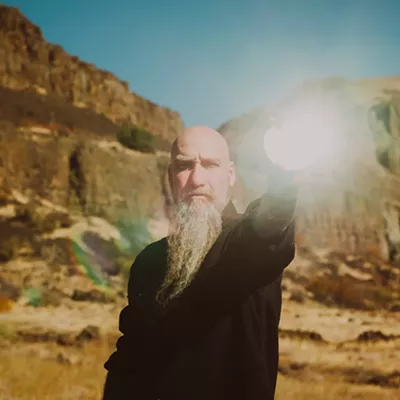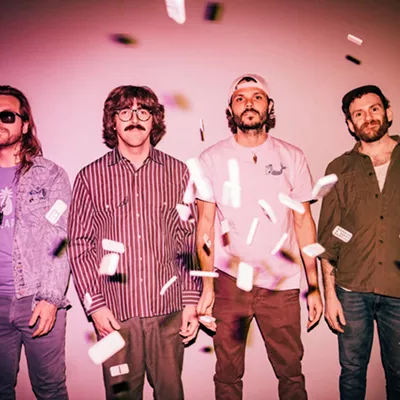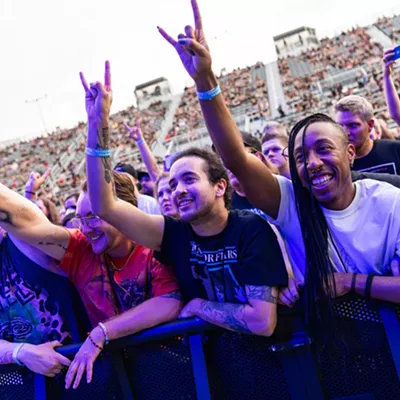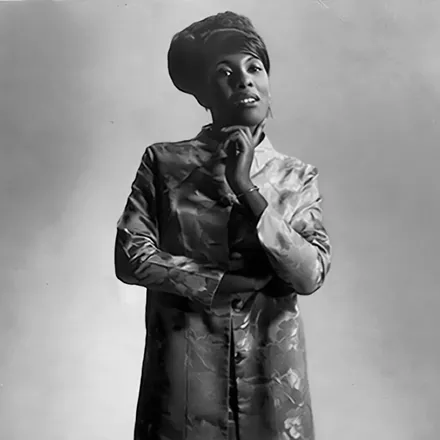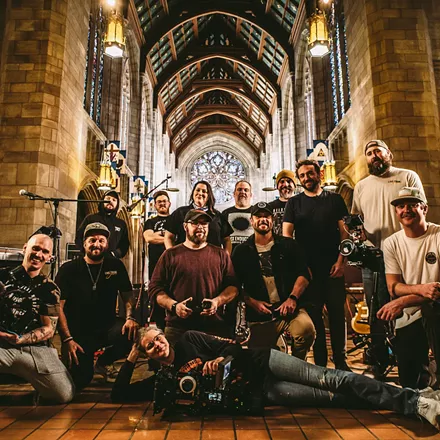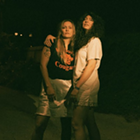The last time the Inlander caught up with Los Angeles-based rock band KOLARS, Rob Kolar (guitar, vocals) and Lauren Brown (percussion) were turning heads with their unusual stage setup. In addition to more traditional drumming techniques, Brown provides the band's rhythmical backbone by tap dancing on an overturned bass drum.
But they're not strictly about the drum schtick. The husband-and-wife duo makes compelling enough "glam-a-billy" music to have captured the attention of Pearl Jam guitarist Mike McCready. On Friday, the band's swaggering new pump-up jam, "Turn It Up," is being released on 7-inch vinyl via McCready's label, HockeyTalkter Records. The song's vintage vibe was achieved at Valentine Recording Studios in Southern California, which closed in 1975 and reopened in 2016 with all of the original recording equipment completely untouched.
Ahead of the band's upcoming Spokane show, Kolar chatted with us about their retro recording experience and the inspiration behind "Turn It Up."
INLANDER: Did recording at Valentine feel like stepping into a time capsule?
ROB KOLAR: The studio was built by this guy Jimmy Valentine, and when he died he left it in his will to his kids, but his kids weren't really into recording or studio stuff. Next door is an auto shop; he also had all these incredible vintage cars. I think his kids were more into that. They used the studio, funny enough, as a storage space, so they would deconstruct these cars and put the parts in the drum room. But they never touched anything — the decor, the gear. For four decades, it went completely untouched. ... You even had magazines dated from 1973 on the counters. You walk into the control room, and you have shag carpets. It's like walking onto a movie set.
What were your sessions like?
We went in there for four days and tried to cram in as much as we could. We were focusing on the drums especially, because we wanted that 1970s, dead-disco, fat analog sound. We knocked a bunch of songs out; a lot of our next album was recorded there. It really helped capture the vibe and energy we were after, that retro-FM kind of quality. And the beauty of it now is that you can take those older sounds and bring them into Pro Tools for editing or mixing. I like the marriage of analog and digital.
Do you think recording in that setting influenced the music itself? Did your songwriting change at all?
When you're in that room, you do feel like you're in a different time, or that time doesn't exist. It's like you've taken a time warp to a different dimension. That affects you as a musician. The space is somehow captured in the audio when you record it. Wherever you are, there's something captured in the sound that is also a reflection of the place. You listen to records made in different countries, recordings made in like Jamaica, and you get a little window into that place, which is pretty wild to think about.
What can you tell me about the meaning of the song "Turn It Up"?
As a young kid, I was always really into singing. My family led a strange life where we moved around a lot to different countries, which was exciting but also a lot to take in. Singing was a great way to express myself in a comfortable way, and feel better about all the changes. I remember trying out for choir groups, but I didn't have a very good voice so I never got accepted. It stuck with me because it was hard and heartbreaking to have something that you really want to do, but you're not good enough, somehow. So, I became very self-conscious about my voice because I had been rejected early on. As a kid, I'd sometimes listen to [the L.A. radio station] K-Rock, and I heard them play this band Rancid. The guy's voice wasn't perfect, but it had all of this emotion — it felt guttural and inspiring and raw. I could sing along and it didn't matter that I wasn't singing perfectly on key. It was a breakthrough for me, that somebody could express themselves that way.
"Turn It Up" is your tribute to raw expression, then? A celebration of freedom and catharsis through rock music?
I always thought it'd be great to write a song about how music makes you feel, especially how — as cliche as it might sound — it helps you get through tough times. "Turn It Up" is about that. One of the lyrics says, "I'll be getting high with the music up." The idea was never about smoking weed or doing drugs, it was about music being able to elevate you and inspire you to face your demons. ♦
KOLARS • Sun, March 31 at 8 pm • $12 • All ages • The Bartlett • 228 W. Sprague • thebartlettspokane.com • 747-2174

